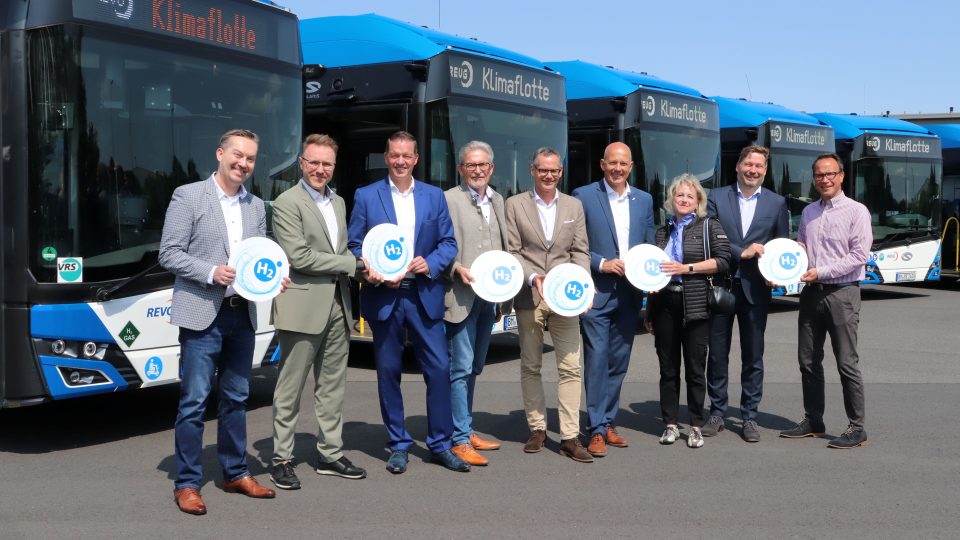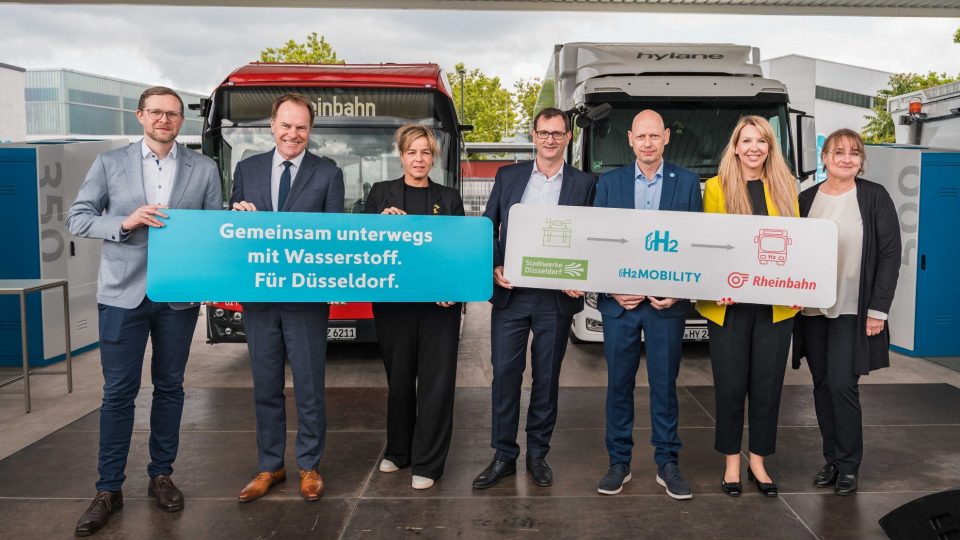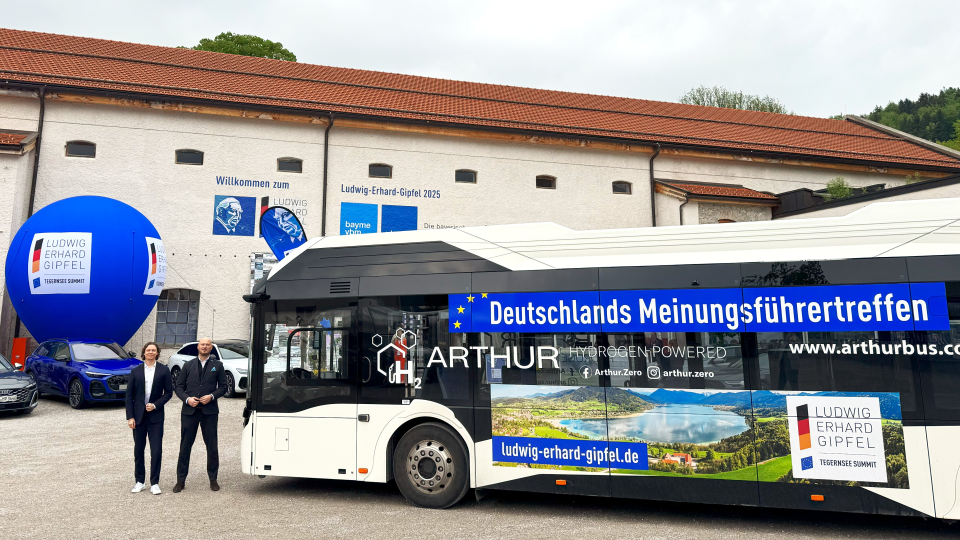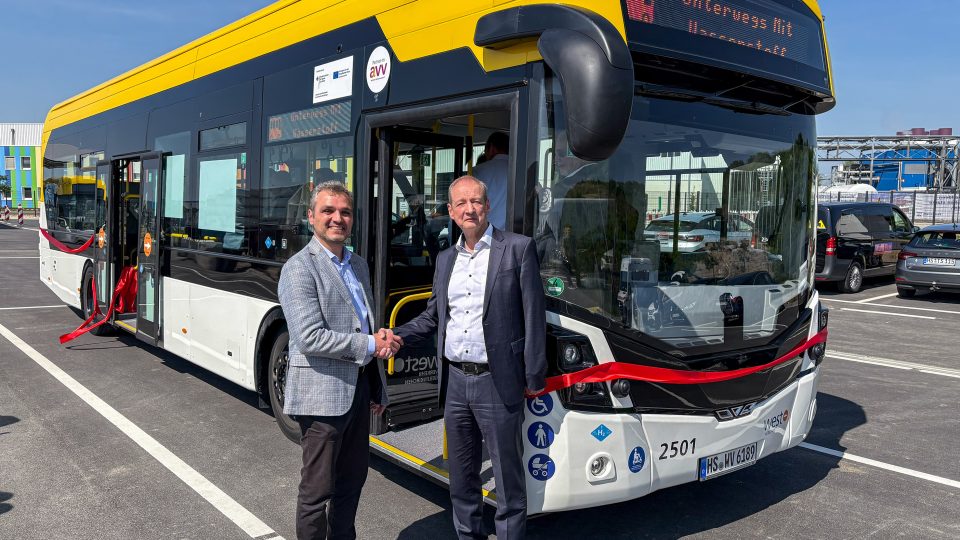Hamburg to roll out 5 hydrogen buses by Solaris
Hamburger Hochbahn has ordered 5 Solaris Urbino 12 hydrogen buses. These zero-emission vehicles will roll out onto the streets of Hamburg as early as the second quarter of 2024. Hochbahn: why hydrogen? The carrier stated on its website that “Since 2020, there have been battery-electric buses ready for series production that are suitable for use in Hamburg – and since then, only […]
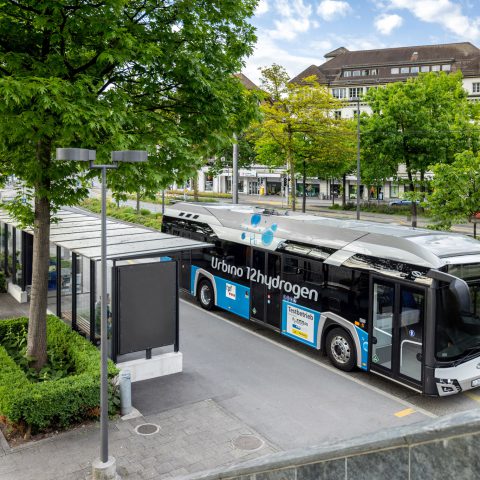
Hamburger Hochbahn has ordered 5 Solaris Urbino 12 hydrogen buses. These zero-emission vehicles will roll out onto the streets of Hamburg as early as the second quarter of 2024.
Hochbahn: why hydrogen?
The carrier stated on its website that “Since 2020, there have been battery-electric buses ready for series production that are suitable for use in Hamburg – and since then, only such buses have been ordered. There are now just under 145 of them, 110 solo and 35 articulated buses. Initially, these buses had the disadvantage that the battery only had a limited range. In the case of the solo bus, it was 150 kilometres without recharging. This would be even less with the heavier articulated bus. From 2024, the fuel cell buses will also be on the road in Hamburg in the classic red and white livery”.
However, Hochbahn continues, “range of electric buses buses has made a real leap forward in development in the last 3 years. The latest solo buses can travel 270 kilometres without recharging, articulated buses manage 230 kilometres – and the development is not over yet. This means that one of the major problems with the use of battery buses can obviously be overcome”.
Why hydrogen, then? Because it “will undoubtedly gain in importance, especially in northern Germany with its high potential for renewable energy sources (keyword: wind energy) – Hochbahn concludes -. Many experts even say that we are (shortly) on the threshold of a hydrogen economy. This could change the framework data in the long term. It is therefore logical that Hochbahn continues to pursue this technology as a so-called strategic option and will then use the first fuel cell buses ready for series production in passenger service from 2024, gather more experience and remain “in touch” with fuel cell technology”.
Solaris fuel cell buses for Hamburg
The Solaris Urbino 12 hydrogen units will be powered by energy derived from a 70 kW hydrogen fuel cell by Ballard Power Systems. Solaris’s experience in developing hydrogen technology dates back to 2014. It was back then, in Hamburg, where the Urbino electric 18 hydrogen bus, with a range extender, was launched – carrying passengers on the innovative 109 route.
Each bus ordered will carry up to 70 passengers, including 26 people seated. Moreover, the carrier has opted for an enclosed driver’s cab and a conventional 2-2-2 door layout.
“The city of the future is a people- and environment-friendly space. We believe that modern public transport plays a key role in the sustainable development of towns and cities. We are proud to be able to exert a real impact in this regard by delivering our zero-emission buses”, says Javier Iriarte, CEO of Solaris Bus & Coach.
“Fuel cell technology remains an important strategic option for Hochbahn. With the five vehicles now on ordered, we will be able to use serial production-ready hydrogen buses in everyday operations for the first time. We are very pleased that we can cooperate with our partner Solaris in this project“, says Henrik Falk, CEO Hamburger Hochbahn AG.




